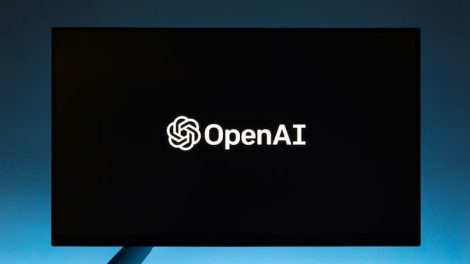ChatGPT’s data analysis tool is revolutionizing how businesses extract actionable insights, eliminating the need for programming expertise. In an era where data is a crucial driver of decisions across industries, this tool stands out as a practical solution for professionals and organizations aiming to leverage their data effectively. By simplifying the traditionally complex process of data analysis, ChatGPT empowers users to interpret, visualize, and act upon information without the hurdles of technical training. This approach has made it an essential asset for businesses striving to remain competitive in a fast-evolving market.

At the core of this tool’s effectiveness lies its intuitive design. Unlike traditional data analysis platforms that often require advanced knowledge of programming languages such as Python, R, or SQL, ChatGPT offers a conversational interface. This allows users to interact with their data by asking straightforward questions or providing directives in plain language. The simplicity of this interaction eliminates barriers for individuals who may lack technical expertise but need accurate and detailed analyses to inform their work.
The versatility of ChatGPT’s data analysis tool is another key feature that distinguishes it from other solutions. Whether handling structured data in spreadsheets or unstructured datasets from diverse sources, the tool adapts to various formats and complexities. This flexibility means you can use it for multiple purposes, from identifying trends and forecasting performance to uncovering inefficiencies within operations. The tool integrates seamlessly with existing workflows, allowing businesses to derive value from their data without the need for disruptive changes to their processes.
One of the most compelling aspects of this tool is its accessibility to decision-makers. Data analysis has traditionally been siloed within specific teams or departments, often requiring the involvement of data scientists or IT specialists to interpret results. ChatGPT democratizes this process by making data insights available directly to business leaders, marketing teams, sales professionals, and other stakeholders. This democratization not only saves time but also fosters a culture of data-driven decision-making across organizations.
Accuracy is a hallmark of ChatGPT’s approach to data analysis. Using advanced natural language processing and machine learning algorithms, the tool ensures that the insights provided are reliable and precise. The underlying AI model has been trained on vast datasets, enabling it to understand nuanced queries and deliver outputs that align with users’ needs. Furthermore, its ability to generate detailed visualizations enhances comprehension, transforming raw data into clear and actionable representations.
In a world increasingly driven by automation, ChatGPT’s tool stands out by blending human-like interaction with powerful computational capabilities. For example, businesses often face challenges in interpreting financial metrics, customer behavior, or market dynamics. ChatGPT simplifies these processes by providing clear explanations, uncovering correlations, and suggesting potential courses of action. This combination of user-friendly interaction and analytical rigor sets a new standard for how organizations engage with their data.
The implications of this tool extend beyond operational efficiency. By enabling businesses to quickly identify opportunities and risks, ChatGPT supports strategic planning and long-term growth. For instance, a retail company could use the tool to analyze customer purchasing patterns, gaining insights that inform inventory management or promotional strategies. Similarly, a healthcare organization might utilize the tool to study patient outcomes, optimizing treatment protocols and resource allocation.
The ability to use the tool without programming expertise also addresses a significant skills gap in the workforce. While demand for data literacy continues to grow, many professionals lack the coding skills traditionally required for in-depth analysis. ChatGPT bridges this gap by providing a solution that anyone can use, regardless of their technical background. This inclusivity not only broadens access to valuable insights but also encourages more widespread adoption of data-driven practices.
To fully appreciate the impact of ChatGPT’s data analysis tool, consider its potential applications in real-world scenarios. In marketing, for example, the tool can analyze campaign performance metrics to determine the effectiveness of different channels or strategies. By identifying which initiatives yield the highest return on investment, businesses can allocate resources more effectively. In manufacturing, the tool can examine production data to pinpoint inefficiencies, reducing costs and improving quality control. Across these use cases, the tool transforms raw data into actionable intelligence.
While the tool excels in many areas, it also raises important considerations about data security and ethical use. As with any AI-powered solution, safeguarding sensitive information is paramount. ChatGPT addresses these concerns by adhering to strict privacy standards and implementing robust encryption protocols. Additionally, users must remain mindful of ethical practices, ensuring that the insights derived from the tool are used responsibly and transparently.
The emergence of ChatGPT’s data analysis tool also reflects broader trends in technology and business. Artificial intelligence is increasingly becoming a cornerstone of modern enterprises, driving innovation and efficiency. By lowering the barriers to entry for data analysis, ChatGPT aligns with this trajectory, enabling businesses of all sizes to harness the power of AI. This democratization of technology not only levels the playing field but also opens new avenues for creativity and growth.
A detailed comparison with traditional data analysis methods highlights the advantages of ChatGPT’s tool. Conventional approaches often involve manual coding, lengthy training periods, and significant resource allocation. In contrast, ChatGPT streamlines the entire process, delivering insights faster and with less effort. This efficiency translates into tangible benefits, such as reduced operational costs and improved decision-making speed.
The transformative potential of this tool is further underscored by its adaptability to emerging challenges. As industries face increasingly complex data environments, tools like ChatGPT provide the scalability and flexibility needed to navigate these challenges effectively. Whether dealing with large volumes of data, diverse data sources, or rapidly changing market conditions, the tool remains a reliable and agile solution.
ChatGPT’s data analysis tool represents a paradigm shift in how businesses approach data-driven decision-making. By offering a user-friendly, no-programming-required platform, the tool empowers professionals to extract actionable insights from their data with ease. Its combination of advanced AI capabilities, accessibility, and versatility makes it an invaluable resource for organizations seeking to stay ahead in a competitive landscape. As the tool continues to evolve, it is poised to play an even more significant role in shaping the future of business intelligence and analytics.










Add Comment